Health & fitness
Brit woman, 38, dies following £7k Brazilian bum-lift in Turkey after surgeon ‘walks out halfway through’
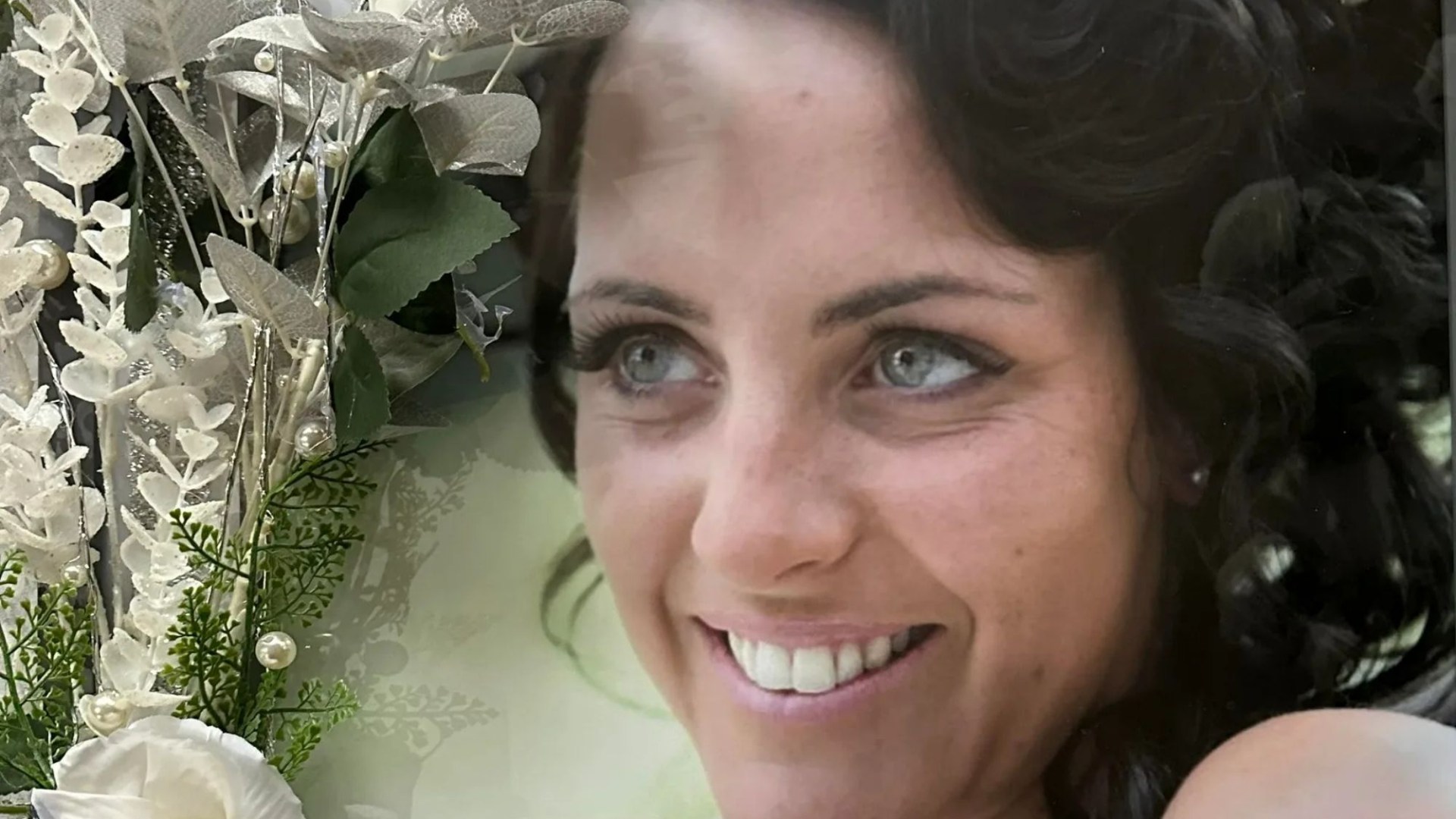
A BRIT woman died following a Brazilian bum-lift in Turkey after the surgeon walked out halfway through the op, an inquest heard.
Hayley Dowell, 38, had a £7,000 for a series of operations – including the BBL, a tummy tuck and liposuction.
But she died just hours later after suffering an embolism while recovering at the BHT Clinic in Istanbul.
Her husband Neil Dowell, who had flown to Turkey with his wife, told an inquest she had not been properly informed of the risks.
Neil also claimed he was asked to sign a consent form after Hayley, from Eastleigh, Hampshire, had died on October 3 last year.
He told Winchester Coroner’s Court: “It should have been a six hour operation but it wound down to one hour 45 [minutes].
“The surgeon left halfway through the operation and left the anaesthetist to do the job. You can’t do both at the same time.”
Neil said the surgeon was advertised as one of the “top five in Turkey”.
He added: “There was not any risk outlined to her.”
Hayley’s mum Ann told the inquest her daughter would not have known the risks” of one of the operations because she didn’t consent to all three of them.
Coroner Nicholas Walker said he will be conducting a full investigation into the information Hayley received and the circumstances of her death.
He also suggested he would be writing a Prevention of Future Deaths report to help stop future tragedies occurring.
The coroner adjourned the hearing ahead of full inquest due to take place in January.
Hayley’s death is the latest in a series of tragedies to hit Brits who go under the knife.
In August, Kaydell Brown, 38 died after paying £5,400 for the procedure, as well as a tummy tuck and a boob job.
While mum Alice Webb died in September after allegedly undergoing the surgery in the UK.
What are Brazilian Bum Lifts and why are they so popular?
Buttock enlargement surgery – known as a Brazilian bum-lift (BBL) – is used to make the bum look bigger, rounded and lifted.
Surgeons transfer fat, inject filler or insert silicone-filled implants.
It is the fastest growing cosmetic procedure but also one of the most dangerous, according to the British Association of Aesthetic Plastic Surgeons (BAAPS).
Many patients are travelling to the likes of Turkey or seeking out unregistered surgeons in the UK and are not given full information on the risks.
BBLs carry the highest risk of all cosmetic surgeries – with more than one death occurring per 4,000 procedures.
Due to celebrities undergoing such ops, many women are hoping to emulate their looks.
Consultant clinical psychologist Dr Anu Sayal-Bennett, a chartered member of the British Psychological Society, told the BBC: “Despite there being so much about body positivity, there are pressures for women – and men too – to look a certain way.”
Many people travel abroad for the procedure because it is cheaper and advertising is “terribly seductive”, combined with the idea of a beach holiday, added Dr Sayal-Bennett.
Brazilian butt-lifts, also known as buttock augmentation procedures, involve injecting fat or filler into the bum to shape it.
But wrongly injecting too deep into the buttock can pump chemicals into the bloodstream and cause deadly clots, infections or sepsis.
They can also go wrong if the anaesthetic is botched or people have an allergic reaction.
The Foreign Office says 28 Brits have died after having cosmetic surgery in Turkey since 2019.
Womens Workouts
LOSE BELLY FAT + SMALL WAIST + SHOULDER + ARMS + THIGH | Special Workout for 35 mins | Zumba Class
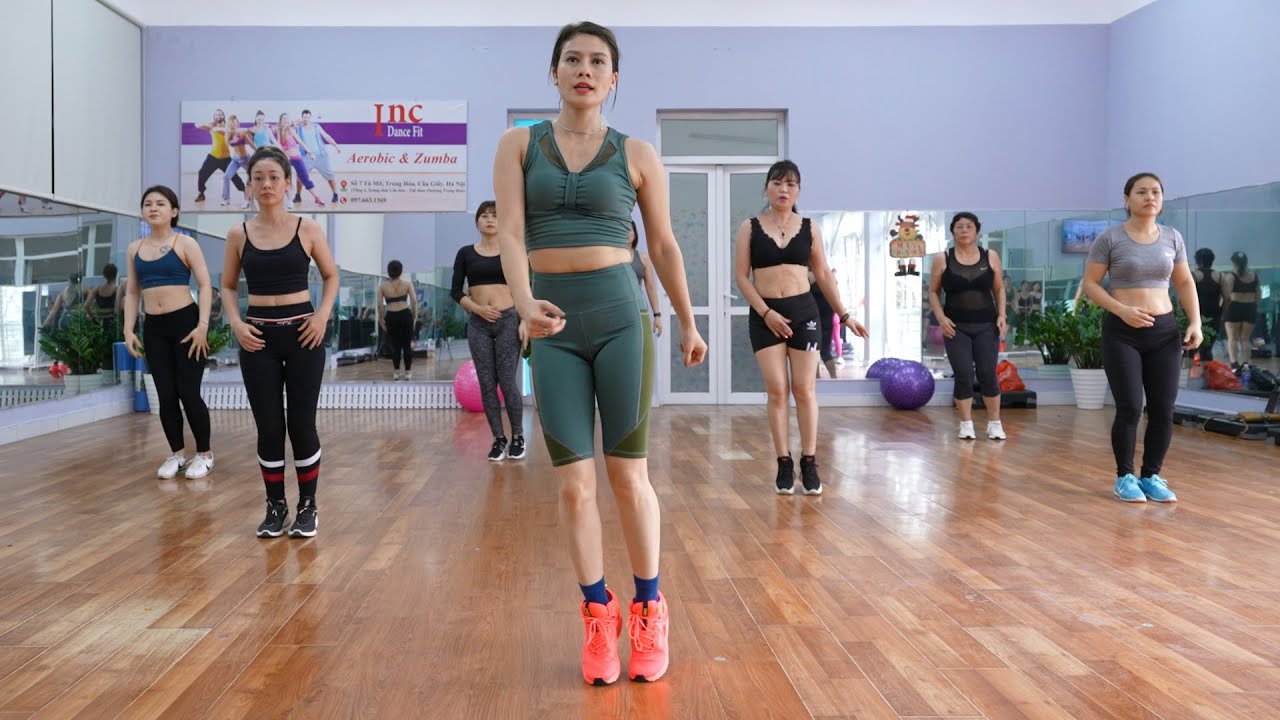
LOSE BELLY FAT + SMALL WAIST + SHOULDER + ARMS + THIGH | Special Workout for 35 mins | Zumba Class
#MiraPham #Aerobic
ღ 𝐋𝐈𝐊𝐄 & 𝐒𝐔𝐁𝐒𝐂𝐑𝐈𝐁𝐄:
💕 𝐒𝐔𝐁𝐒𝐂𝐑𝐈𝐁𝐄: http://bit.ly/2kAsbdr
💕 𝐋𝐈𝐊𝐄 Fanpage: https://bit.ly/36aIoLi
🚫 If any producer or label has an issue with any of the uploads please get in contact. Thank You!
✉ zumbaclass.fitness@gmail.com
© Copyright by Zumba Class ☞ Do not Reup
source
Health & fitness
I was devastated to find out my cancer had been diagnosed 10 months LATE due to a ‘missed email’ – I assumed I was fine
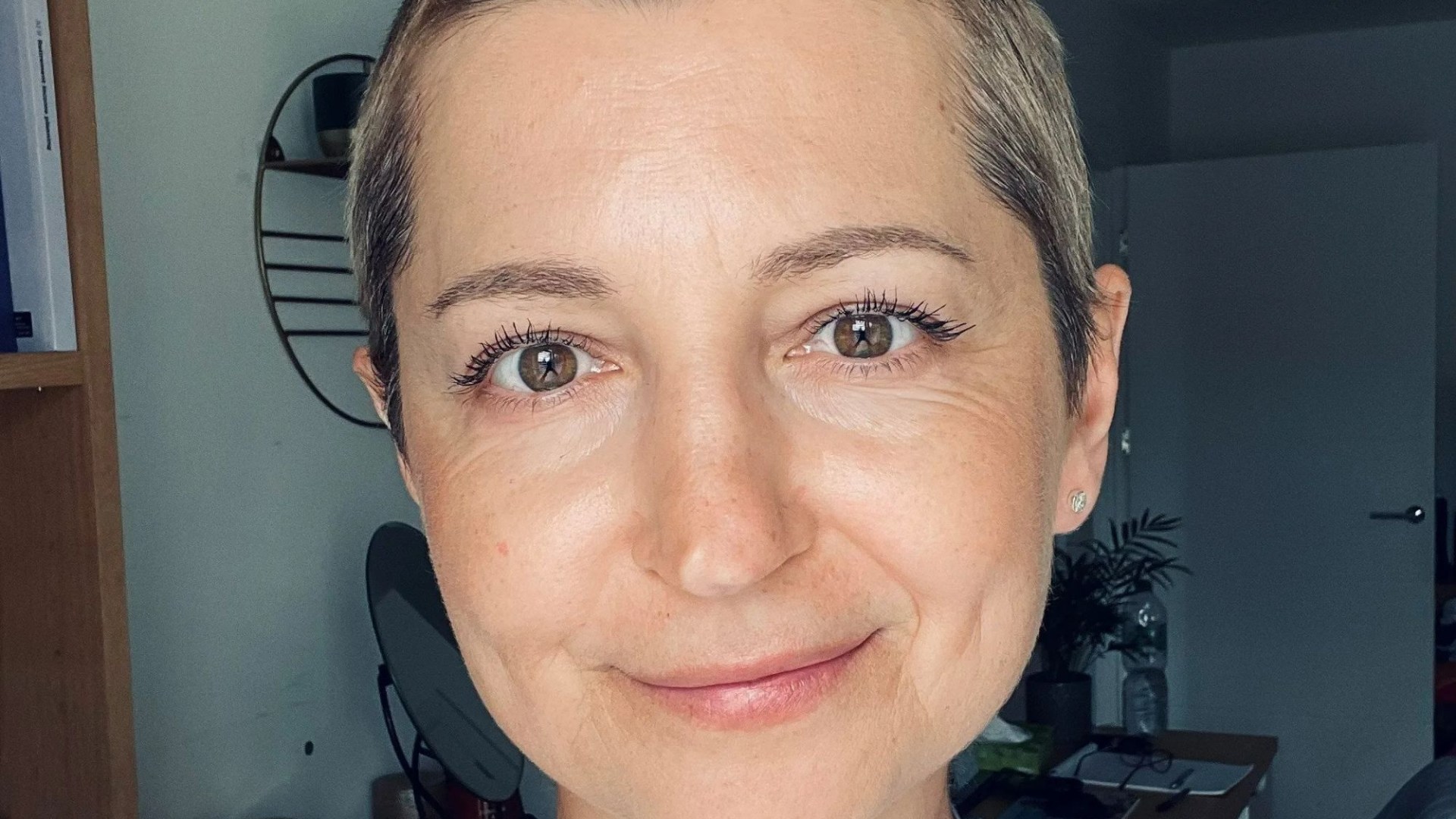
A MUM was diagnosed with cancer 10 months late because of a missed email, her lawyers have said.
Wioletta Smith, 41, had attended a yearly examination for breast cancer at Kingston Hospital in south west London in 2022 due to changes in her right breast.
A mammogram image was marked as FAR (further action required) by the radiologist, with recommendations for an ultrasound assessment and possible biopsy.
It was emailed to the breast clinic – but it later transpired it was never received, Wioletta’s lawyers Irwin Mitchell have said.
Kingston Hospital Foundation Trust said in a letter the result was not sent via the agreed process, therefore it wasn’t received by the breast clinic and the recommendations weren’t actioned.
Having not heard anything back, Wioletta, from East Molesley in Surrey, “assumed everything was fine”.
In October 2023, she attended her GP surgery reporting a lump in her breast, and was referred under the urgent two-week suspected cancer pathway.
She underwent a biopsy and it was then she was diagnosed with stage 3 breast cancer.
Wioletta said: “I always made sure to attend all my appointments and reviews at the hospital, so when I didn’t hear back about the mammogram in question, I assumed everything was fine.
“So to then find out less than a year later that I had cancer came as a huge shock; I was absolutely devastated.
“It would have been easy for me to crumble and think ‘why me?’ but I knew I couldn’t change the diagnosis so I was determined to fight it. I have a young son and I want to be around to see him grow up, so giving up really wasn’t an option.”
Since her diagnosis, Wioletta has undergone surgery to remove the lump, and treatment including chemotherapy and radiotherapy.
She’s also received a letter from the trust to apologise, but still feels let down.
In their letter, the hospital trust said they have since redesigned the process for radiological alerts distribution and the pathway for patients under surveillance mammogram review to “minimise the likelihood of human error”.
Wioletta, who is a financial planner, has now instructed medical negligence lawyers at Irwin Mitchell to investigate her care and is working hard to raise awareness for the importance of testing.
She said: “The treatment process has been gruelling, both physically and emotionally, and I had to keep telling myself it’s temporary and I’ll get through the other side.
To find out less than a year later that I had cancer came as a huge shock; I was absolutely devastated.
Wioletta Smith
“I still feel hugely let down by the hospital trust, but I appreciate the apology and that they’ve introduced changes to help prevent something like this happening to someone else.
“I hope by speaking out, I can raise awareness of the symptoms of breast cancer. Many people are affected by the disease, so we all need to know what to look out for.”
Lauren Mannion, the lawyer representing her, said: “The past year has been incredibly difficult for Wioletta coming to terms with her diagnosis and the physical and emotional impact it’s had on her.
“Through our work, we sadly see the devastating effects that breast cancer can have, and understandably Wioletta has a number of questions and concerns around the events that led up to her diagnosis.
What are the signs of breast cancer?
BREAST cancer is the most common type of cancer in the UK.
The majority of women who get it are over 50, but younger women and, in rare cases, men can also get breast cancer.
If it’s treated early enough, breast cancer can be prevented from spreading to other parts of the body.
Breast cancer can have a number of symptoms, but the first noticeable symptom is usually a lump or area of thickened breast tissue.
Most breast lumps aren’t cancerous, but it’s always best to have them checked by your doctor. You should also speak to your GP if you notice any of the following:
- a change in the size or shape of one or both breasts
- discharge from either of your nipples (which may be streaked with blood)
- a lump or swelling in either of your armpits
- dimpling on the skin of your breasts
- a rash on or around your nipple
- a change in the appearance of your nipple, such as becoming sunken into your breast
Source: NHS
“While we continue to support Wioletta so she can access the specialist support and therapies she requires, we welcome that the Trust’s pledge to improve patient safety.
“Despite what happened to Wioletta and current concerns around cancer care and waiting times, it’s important people continue to participate in screening programmes or seek medical advice as soon as possible if they’re concerned they may have cancer.
“Early detection and treatment are key to beating it.”
The hospital trust was approached for comment.
How to check your breasts
It is important to regularly check your breasts for any changes. Breast tissue reaches all the way up to your collarbone and across to your armpit, so it’s vital to check these areas too.
If you feel or see any changes in your breast you should always consult your GP.
Charity CoppaFeel! recommends checking your breasts monthly, so you can pick up on any changes quickly.
Breasts do change naturally as part of your monthly menstrual cycle, so you should get to know your breasts, how they feel and what changes they usually go through to know if anything is out of the ordinary.
Five-step check
There is a five-step self exam you can do at home to check for any changes.
Step one: Begin by looking in a mirror, facing it with your arms on your hips and your shoulders straight. You should be looking for any dimpling, puckering, bulging skin, redness, soreness, a rash or changes in the nipple.
Step two: Still looking in the mirror, raise both arms above your head and check for the same changes.
Step three: With your arms still above your head, check for any fluid coming from the nipples. This can include milky, yellow or watery fluid, or blood.
Step four: While lying down use your opposite hand to check each breast. Using a few fingers, keeping them flat and together, go in a small circular motion around your breasts. Make sure you feel the entire breast by going top to bottom in these small circles. It helps to develop a system or pattern to make sure every inch is covered. Use light pressure for the skin and tissue just beneath, medium pressure for the tissue in the middle of your breasts, and firm pressure to feel the tissue at the back, feeling down to your ribcage.
Step five: Feel your breasts while either standing or sitting, using the same small circular motions.
Womens Workouts
My Workout Split ⚡️
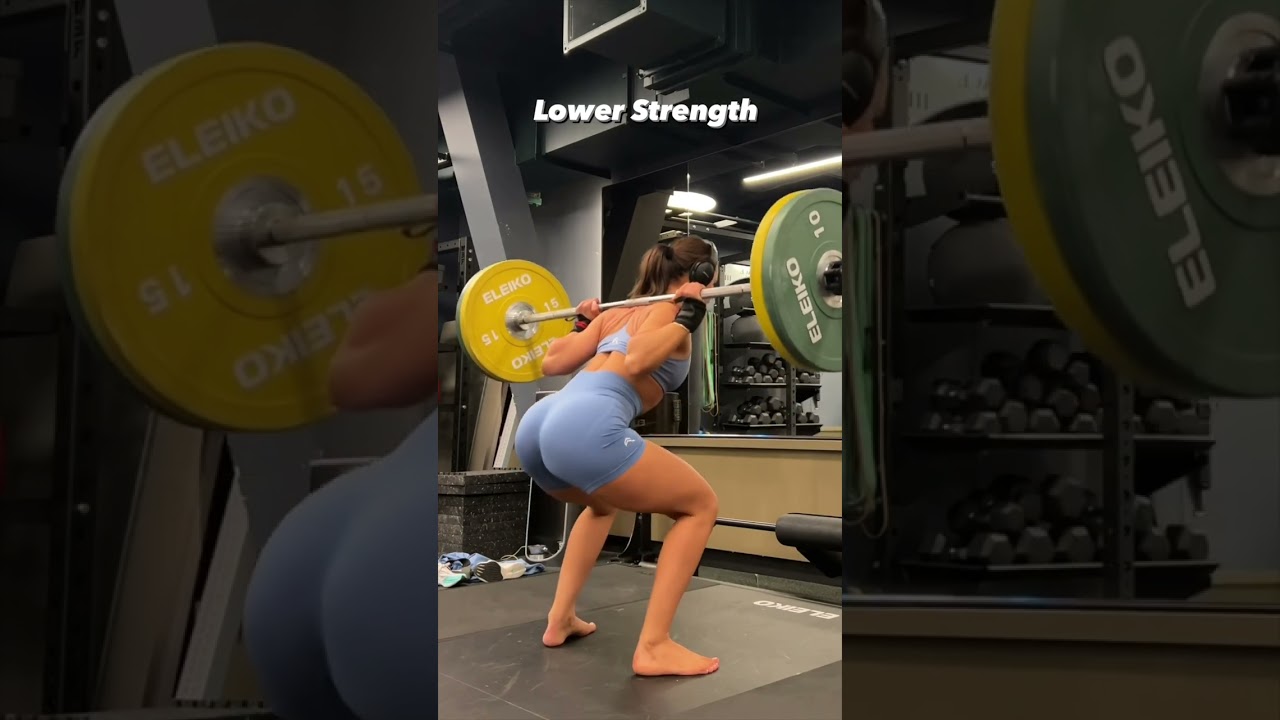
My current workout split which I’m loving.
I’ll be honest with you it’s been a little wishy washy with my routine lately so I’m posting this to inspire myself to get back to my routine which helped me the most.
I was on week 6-7 of strong lower body from the @evolveyou app and I absolutely loved it! I was lifting heavier than before, had a set routine and then life happens. COME JOIN it’s the best program ever 🔥
Going to start with 4 days adding some core & cardio daily if I want then push up to 5 days when I have time!
So here’s my pledge to get make into my strong lower body program I loved so much! If you’re feeling lost and confused I hope this workout split helps you ✌️
source
Health & fitness
The 5 everyday habits that increase your risk of mouth cancer – and 8 signs you must never ignore
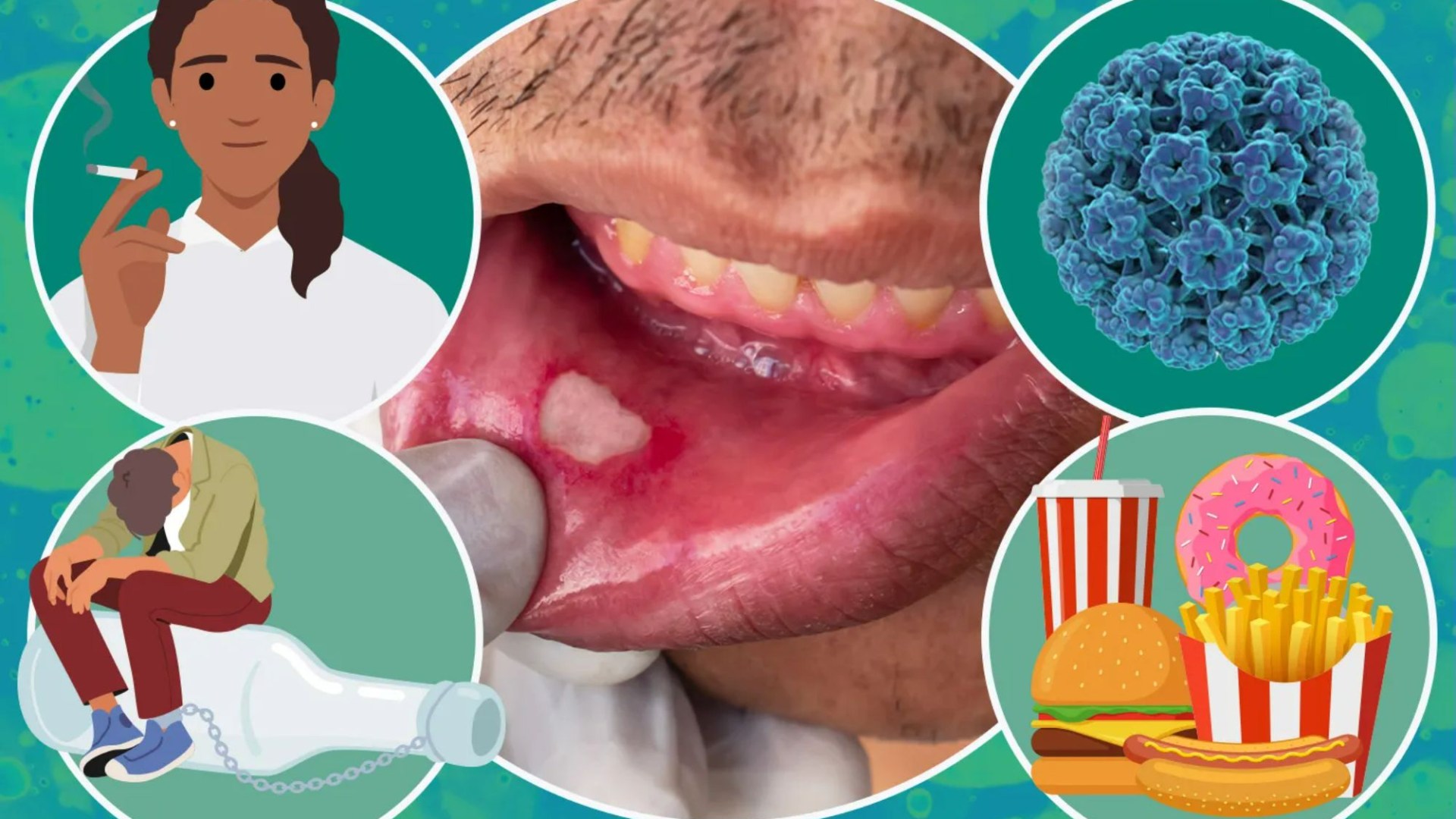
A WORRYING amount of Brits are developing mouth cancer, with a new report warning of record-breaking cases.
Some 10,825 people are being diagnosed with the disease each year, marking a 133 per cent rise in cases over the last 20 years.
Mouth cancer can affect gums, tongue, inside the cheeks, or lips, with symptoms including mouth ulcers that don’t heal, red or white patches in the mouth, and unusual lumps or swellings in the mouth, head, or neck.
The charity Oral Health Foundation says this is the first time annual cases have surpassed the 10,000 mark.
Its chief executive Dr Nigel Carter warned: “While many types of cancer are declining, mouth cancer continues to surge.
“Smoking and excessive alcohol consumption remain the most significant risk factors, but we are seeing a growing number of cases linked to the human papillomavirus (HPV) and other emerging causes.”
Read more on mouth cancer
Despite this alarming rise, many people aren’t aware of the main causes and factors that put them at risk of the disease, making them less likely to take steps to reduce their chance of getting it.
According to the charity, just 8 per cent of the Brits can name the leading causes of mouth cancer.
Dr Carter said: “Mouth cancer can affect anyone, and the impact on a person’s life can be devastating.
“We need to raise awareness of the symptoms, the risk factors, and most importantly, the importance of early detection.
“Too many cases are diagnosed too late, often at the most advanced stage. This needs to change.”
In honour of Mouth Cancer Action Month this November, the Oral Health Foundation flagged five habits that could make you more likely to develop mouth cancer and lifestyle tweaks to lower your risk.
Dr Carter stressed: “Understanding the risks associated with mouth cancer is crucial for everyone.
“Take the time to learn about your own risk factors and make informed choices to reduce them.
“If you know you’re at higher risk, be extra vigilant about changes in your mouth.”
1. Smoking
It’s well known that smoking can be harmful to your lung health, but the habit is also linked to around 17 per cent of mouth cancers in the UK.
This includes puffing on cigarettes, pipes and cigars.
According to the Oral Health Foundation, 38 per cent of Brits have no idea smoking could lead to mouth cancer.
Dr Carter said: “Tobacco use is a leading cause of mouth cancer.
“Quitting smoking or use of tobacco products can significantly reduce your risk.
“There are many resources available to help you quit smoking, including NHS smoking cessation services and local support groups.
“Regular dental check-ups are also crucial if you smoke.
“Your dental team can help you manage any oral diseases that have been caused by smoking and trained to spot anything more sinister if it arises.”
2. Snus and chewing tobacco
Smokeless ways of consuming tobacco aren’t as common in the UK, but tobacco pouches dubbed snus have seen a recent rise in popularity.
Tucked in between the lip and gum, snus can give you a nicotine buzz and has reportedly been used by football stars Jamie Vardy and Jamaal Lascelles.
But the Oral Health Foundation warned that smokeless and chewing tobacco can increase a person’s mouth cancer risk by up to four-and-a-half times.
The charity’s research shows that 40 per cent of people don’t know the two are linked.
The 8 signs of mouth cancer to know
Symptoms of mouth cancer can include:
- A mouth ulcer in your mouth that lasts more than three weeks
- A red or white patch inside your mouth
- A lump inside your mouth or on your lip
- Pain inside your mouth
- Difficulty swallowing
- Difficulty speaking or a croaky voice
- A lump in your neck or throat
- Losing weight without trying
These symptoms are very common and can be caused by other conditions – having them doesn’t definitely mean you have mouth cancer, but it’s important to get checked by a GP or dentist.
If your symptoms are caused by cancer, finding it early may mean it’s easier to treat.
Source: NHS
Common examples of smokeless tobacco are chewing tobacco in loose or compressed leaves, snuff – a finely ground tobacco that can be dry or moist – dissolvable tobacco in tablets or strips, and snus.
In the UK, smokeless tobacco use is most prevalent among South Asian communities, particularly those of Bangladeshi, Indian, and Pakistani origin.
Dr Carter said: “These products pose significant health risks and are often linked to cultural practices.”
“If you use smokeless or chewing tobacco, it’s important to know that it’s not a safer alternative to smoking. This misconception can be dangerous.
“To protect your oral health, try to quit these products and seek help from healthcare professionals.
“Regular dental check-ups, maintaining good oral hygiene, and using support services can make a big difference.”
3. Drinking too much
Drinking too much can affect your health in many way – including raising your risk of mouth cancer.
The Oral Health Foundation says excessive boozing is linked to 34 per of mouth cancers, making it one of the main causes.
But 58 per cent of Brits don’t know the risks.
Dr Carter said: “Excessive alcohol consumption is a major risk factor for mouth cancer, yet awareness remains alarmingly low.
“Many people who drink heavily might not realise the serious impact it has on their oral health.
“By reducing your alcohol intake and attending regular dental check-ups, you can significantly lower your risk of mouth cancer and improve your overall health.”
4. Unsafe sex
According to Dr Carter, a growing number of mouth cancer cases have been linked to HPV, a common group of viruses that affects areas like the mouth, throat, and genitals.
It’s usually spread through skin-to-skin contact during sex, as well as oral sex and kissing.
Most people with HPV don’t show any symptoms and the infection often goes away on its own, but certain high risk strains can cause warts.
For some, the changes caused by the virus can lead to cervical cancer and mouth cancer.
The number of mouth cancer cases linked to HPV is on the rise, with data showing that up to 73 per cent of cancers in areas like the back of the tongue and tonsils are HPV-positive.
But 8 per cent of people know HPV can cause mouth cancer.
Practising safe sex and getting tested for the virus can help protect you.
The different types of mouth cancer
Mouth cancer, also known as oral cancer, is where a tumour develops on the surface of the:
Tumours can also occur in the
- Salivary glands
- Tonsils
- Pharynx – the part of the throat from your mouth to your windpipe
Source: NHS Inform
But teens and young adults in the UK also have access to an HPV-combating vaccine.
Dr Carter explained: “The HPV vaccine has been offered to girls in the UK since 2008 and to boys since 2019.
“I urge parents to ensure their children are vaccinated. It’s the most effective form of protection and it is vital this happens before a person becomes sexually active.
“For those who are older and haven’t been vaccinated, it’s important to be mindful of the threat HPV poses.
“Being vigilant to any changes in and around the mouth is crucial.
“Remember, just because you don’t smoke or drink, it doesn’t mean you’re free from the risk of mouth cancer.”
5. Unhealthy diet
What you eat can influence your risk of the disease too, as eating a healthy diet can slash your risk.
Dr Carter noted: “A balanced diet rich in fruits, vegetables, and essential nutrients can substantially reduce the risk of developing mouth cancer.
“It’s important to incorporate these elements into your daily routine for better overall health.”
Research has shown that consuming fruits regularly can lower your risk by 48 per cent, while taking vitamin C supplements can reduce the risk by 24 per cent, the Oral Health Foundation added.
It claimed calcium supplements could also lower the risk by 36 per cent, while drinking four cups of coffee a day could reduce your risk by 39 per cent and drinking green tea by 20 per cent.
“By making small, consistent changes to your diet, you can significantly protect yourself against mouth cancer,” Dr Carter said.
“Stay vigilant about your health and make informed dietary choices to support your oral health.”
Womens Workouts
30 MIN CALORIE KILLER HIIT & ABS Workout – No Equipment – Full Body Home Workout

Team, let’s crush this 30 min Calorie Killer HIIT & ABS workout and work up a sweat!! A home workout with bodyweight only exercises for your Full Body 💪 Tone lean muscles, and improve your overall fitness level! Get excited, it’s going to be a fun HIIT workout! Let’s do it!
▸ Muscles Worked: Full Body Cardio & Toning
▸ Time: 30 Min + cool down stretches
▸ Equipment: No Equipment
♡ For more workouts, sign up to my Grow with Anna APP: https://growwithanna.page.link/GetGrowNow
Workout:
▸ WARM UP 30 sec on, no rest
▸ ABS ABS ABS 🔥 30 sec on, no rest
▸ TIME TO SWEAT 💦 40 sec on, 10 sec off
▸ ABS ABS ABS 🔥 30 sec on, no rest
▸ FINAL HIIT BURN 💦 40 sec on, 10 sec off
▸ COOL DOWN 30 sec on, 10 sec off
Please remember that we are all different and that you can make this your own workout ♡ Take a longer break when you need to.
♡ Sign up to the Team Grow Newsletter: https://manage.kmail-lists.com/subscriptions/subscribe?a=VLsDDa&g=WikyFT
♡ Join the OFFICIAL TEAM GROW Community Group: https://www.facebook.com/groups/teamgrowsupport/
♡ My @KorodrogerieDe DISCOUNT CODE: GROW
♡ My fitness watch: @withings
♡ My Amazon Storefront: https://www.amazon.de/shop/growingannanas
♡ The Gear I Use:
Camera: https://amzn.to/3aticKD
Lens: https://amzn.to/3cCiujR
Tripod: https://amzn.to/2zontX9
Microphone: https://amzn.to/34VaKXH
♡ SUBSCRIBE: http://bit.ly/2QLvpXn
♡ Instagram: http://bit.ly/2ZSdHFR
♡ Facebook: http://bit.ly/2SVkgpE
♡ My Music: https://www.epidemicsound.com/referral/gw5avz
#growingannanas #growwithanna #homeworkouts #hiitworkout
D I S C L A I M E R
If you are a newbie start with a simple and easy exercise before attempting all advanced exercises. Performing exercises out of your capability might strain your muscles and you may get injured.
This channel offers health, fitness and nutritional information. You should not rely on this information as a substitute for, nor does it replace, professional medical advice, diagnosis, or treatment. By performing any fitness exercises without supervision like with this video, you are performing them at your own risk. See a fitness professional to give you advice on your exercise form. Growingannanas will not be responsible or liable for any injury or harm you sustain as a result of this video.
source
Health & fitness
The physical change that could predict whether you’re going to get dementia up to nine years before a diagnosis
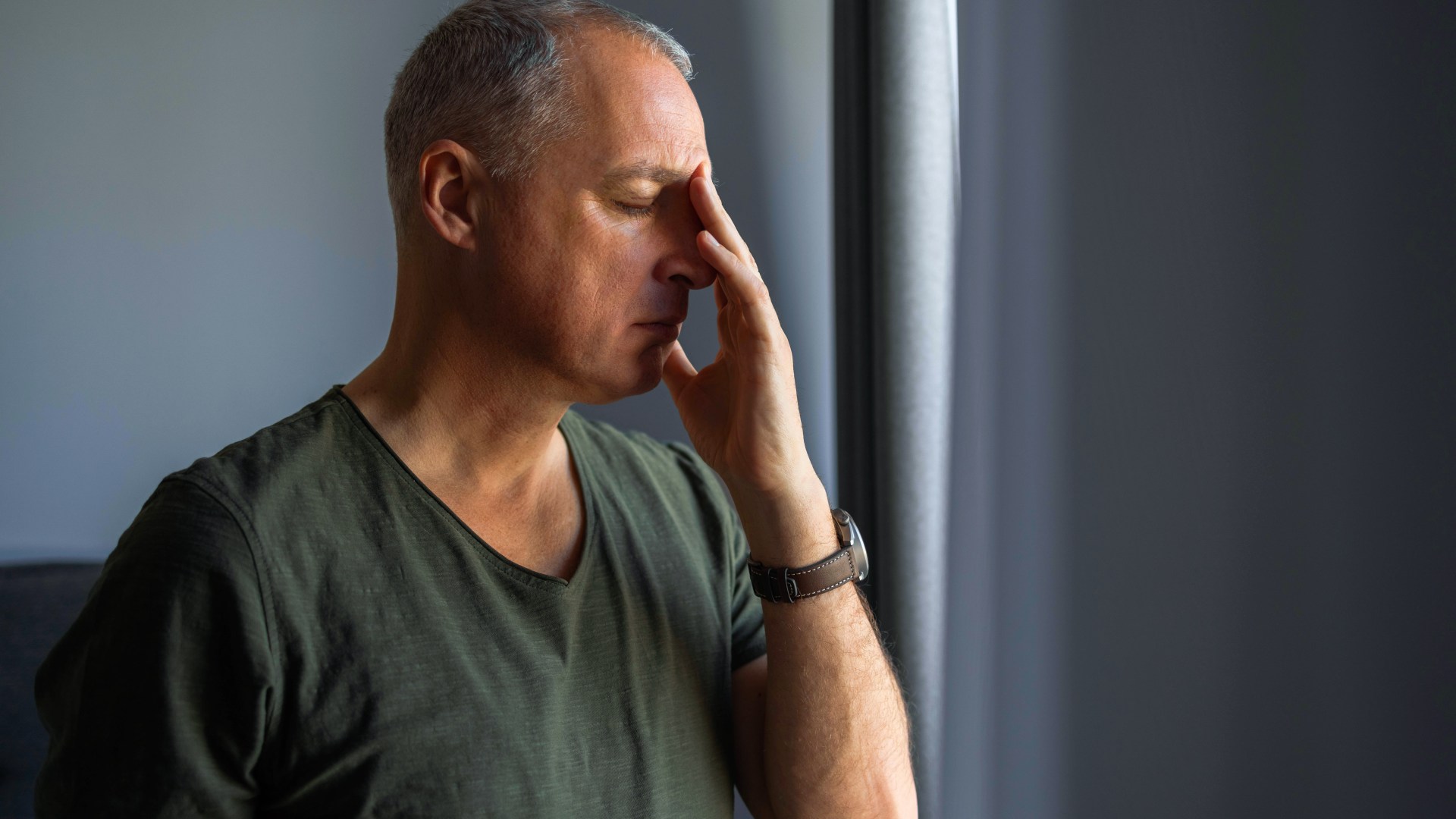
DEMENTIA can cause a number of physical changes in a person – but some of these changes could appear years before a diagnosis.
More and more studies are suggesting risk factors for Alzheimer’s can reveal themselves long before a diagnosis.
A recent study found how long you’re able to stand on one leg for could signal dementia.
Now, a new study has linked increased frailty to dementia – nine years before a diagnosis.
The findings give “new hope” early intervention can prevent the condition.
Researchers from The University of Queensland looked at international data from more than 30,000 people from the US and UK over a 20 year period.
They found frailty appeared and accelerated in the nine years before those who had dementia by the end of the study were diagnosed.
Dr David Ward, one of the study’s authors, told The Royal Australian College of General Practitioners (RACGP), said: “Our findings who with every four to five additional health problems there is on average a 40 per cent higher risk of developing dementia, while for people who are fitter the risk is lower.”
The paper didn’t definitively prove frailty is a symptom of dementia, but Dr Ward told RACGP: “This [data] suggests frailty is not merely a consequence of undetected dementia but contributes to its onset.”
He added: “By understanding the connection between ageing frailty and dementia we can use targeted intervention strategies to reduce risk and improve quality of life.”
What is frailty?
Frailty describes a person’s physical and mental resilience, or ability to recover from illness or injury.
Symptoms of frailty, according to the NHS, can include:
- Walking slowly
- Getting exhausted easily
- Struggling to get out of a chair or climb stairs
- Being housebound or only able to leave home with help
Frailty can lead to adverse outcomes, such as falls, disability, hospital admission, long-term care, and mortality.
While early dementia diagnosis is key, to help manage the condition and as a diagnostic tool, promoting healthy ageing can help avoid or delay the onset of frailty.
How to promote healthy ageing
According to Age UK, there are a number of things you can do to age better.
Watch what you eat and drink
Eating a healthy, balanced diet is crucial for good health and preventing illness. A healthy diet includes a variety of foods from different food groups, such as fruits and vegetables, starchy foods, and protein, and limits foods high in fat, salt, and sugar. You should also make sure you drink plenty of fluids such as water, diluted squash and fruit juice to stay hydrated.
Look after your teeth
You should brush your teeth twice a day and floss daily to help prevent gum disease. Gum disease can be linked to diabetes, strokes, heart disease and rheumatoid arthritis. Make sure you have regular check-ups, and if you have dentures or a bridge, ask your dentist to check they fit properly.
Stay active
Daily exercise can help you stay strong and healthy as it lowers the risk of obesity, heart disease, stroke, diabetes, and even cancer. Staying active can boost your self-esteem, improve your sleep, and give you more energy. Government guidelines recommend that older adults do 150 minutes of moderate intensity activity per week, as well as strengthening exercises twice a week.
Make the most of your doctor
Routine tests at the doctors can check your blood pressure and cholesterol levels. High readings of these can increase the risk of stroke and heart disease, but can be treated with medication.
Get a vitamin boost
Many people have a vitamin D deficiency and don’t know it. Vitamin D deficiency has been linked to cognitive impairment, bone problems and also cardiovascular disease. Try to get outside in the sunshine for at least 15-20 minutes a day for a vitamin D boost. Foods like eggs, mushrooms and oily fish are also good sources of vitamin D, or you can speak to your doctor about getting a vitamin D supplement.
Take care of your feet
Look after your feet by applying moisturiser to prevent dry skin, and cut your toenails straight across. Also, make sure you have footwear that fits properly and supports your feet. Contact your doctor if your feet become painful, feel very hot or cold or if you have common problems like corns, bunions or ingrown toenails.
Sort out your sleep
Sleep is essential for good health and well-being. You can avoid sleep problems like insomnia by cutting down on daytime naps, establishing a bedtime routine, and going to bed at the same time each night.
Take the tests
Hearing and eye tests are important, particularly as hearing loss is common in older people. You should have your eyes checked every two years, so if there are any changes in your vision, these can be corrected. Eye tests are free if you’re over 60.
Stay in touch
Spending time with other people can prevent you from feeling lonely or anxious. Loneliness has been linked to a number of health conditions including depression and heart disease.
Give up smoking
Smoking has been linked to a whole range of different health problems, including heart disease, lung cancer, and bronchitis. If you stop smoking, regardless of your age, your circulation, your lung capacity and your energy levels will improve.
Is it ageing or dementia?

Dementia – the most common form of which is Alzheimer’s – comes on slowly over time.
As the disease progresses, symptoms can become more severe.
But at the beginning, the symptoms can be subtle or mistaken for normal memory issues related to ageing.
The US National Institute on Aging gives some examples of what is considered normal forgetfulness in old age, and dementia disease.
You can refer to these above.
For example, it is normal for an ageing person to forget which word to use from time-to-time, but difficulting having conversation would be more indicative of dementia.
Katie Puckering, Head of Alzheimer’s Research UK’s Information Services team, previously told The Sun: “We quite commonly as humans put our car keys somewhere out of the ordinary and it takes longer for us to find them.
“As you get older, it takes longer for you to recall, or you really have to think; What was I doing? Where was I? What distracted me? Was it that I had to let the dog out? And then you find the keys by the back door.
“That process of retrieving the information is just a bit slower in people as they age.
“In dementia, someone may not be able to recall that information and what they did when they came into the house.
“What may also happen is they might put it somewhere it really doesn’t belong. For example, rather than putting the milk back in the fridge, they put the kettle in the fridge.”
-

 Science & Environment2 months ago
Science & Environment2 months agoHow to unsnarl a tangle of threads, according to physics
-

 Technology2 months ago
Technology2 months agoWould-be reality TV contestants ‘not looking real’
-

 Technology2 months ago
Technology2 months agoIs sharing your smartphone PIN part of a healthy relationship?
-

 Science & Environment2 months ago
Science & Environment2 months agoHyperelastic gel is one of the stretchiest materials known to science
-

 Science & Environment2 months ago
Science & Environment2 months agoX-rays reveal half-billion-year-old insect ancestor
-

 Science & Environment2 months ago
Science & Environment2 months ago‘Running of the bulls’ festival crowds move like charged particles
-

 Science & Environment2 months ago
Science & Environment2 months agoPhysicists have worked out how to melt any material
-

 MMA1 month ago
MMA1 month ago‘Dirt decision’: Conor McGregor, pros react to Jose Aldo’s razor-thin loss at UFC 307
-

 News1 month ago
News1 month ago‘Blacks for Trump’ and Pennsylvania progressives play for undecided voters
-

 News1 month ago
News1 month agoWoman who died of cancer ‘was misdiagnosed on phone call with GP’
-

 Money1 month ago
Money1 month agoWetherspoons issues update on closures – see the full list of five still at risk and 26 gone for good
-

 Sport1 month ago
Sport1 month agoAaron Ramsdale: Southampton goalkeeper left Arsenal for more game time
-

 Football1 month ago
Football1 month agoRangers & Celtic ready for first SWPL derby showdown
-

 Sport1 month ago
Sport1 month ago2024 ICC Women’s T20 World Cup: Pakistan beat Sri Lanka
-

 Science & Environment2 months ago
Science & Environment2 months agoA new kind of experiment at the Large Hadron Collider could unravel quantum reality
-
Business1 month ago
how UniCredit built its Commerzbank stake
-

 Science & Environment2 months ago
Science & Environment2 months agoMaxwell’s demon charges quantum batteries inside of a quantum computer
-

 Science & Environment2 months ago
Science & Environment2 months agoSunlight-trapping device can generate temperatures over 1000°C
-

 Science & Environment2 months ago
Science & Environment2 months agoLiquid crystals could improve quantum communication devices
-

 Science & Environment2 months ago
Science & Environment2 months agoQuantum forces used to automatically assemble tiny device
-

 Science & Environment2 months ago
Science & Environment2 months agoLaser helps turn an electron into a coil of mass and charge
-

 Technology2 months ago
Technology2 months agoUkraine is using AI to manage the removal of Russian landmines
-
Business1 month ago
Top shale boss says US ‘unusually vulnerable’ to Middle East oil shock
-

 Technology1 month ago
Technology1 month agoSamsung Passkeys will work with Samsung’s smart home devices
-

 MMA1 month ago
MMA1 month agoPereira vs. Rountree prediction: Champ chases legend status
-

 News1 month ago
News1 month agoNavigating the News Void: Opportunities for Revitalization
-

 Science & Environment2 months ago
Science & Environment2 months agoQuantum ‘supersolid’ matter stirred using magnets
-

 Technology2 months ago
Technology2 months agoRussia is building ground-based kamikaze robots out of old hoverboards
-

 Science & Environment2 months ago
Science & Environment2 months agoWhy this is a golden age for life to thrive across the universe
-

 News1 month ago
News1 month agoMassive blasts in Beirut after renewed Israeli air strikes
-

 Technology1 month ago
Technology1 month agoGmail gets redesigned summary cards with more data & features
-

 News1 month ago
News1 month agoCornell is about to deport a student over Palestine activism
-

 Technology1 month ago
Technology1 month agoSingleStore’s BryteFlow acquisition targets data integration
-

 Technology2 months ago
Technology2 months agoMicrophone made of atom-thick graphene could be used in smartphones
-

 Business1 month ago
Business1 month agoWater companies ‘failing to address customers’ concerns’
-

 Sport1 month ago
Sport1 month agoBoxing: World champion Nick Ball set for Liverpool homecoming against Ronny Rios
-

 Sport1 month ago
Sport1 month agoShanghai Masters: Jannik Sinner and Carlos Alcaraz win openers
-

 Entertainment1 month ago
Entertainment1 month agoBruce Springsteen endorses Harris, calls Trump “most dangerous candidate for president in my lifetime”
-

 Money1 month ago
Money1 month agoTiny clue on edge of £1 coin that makes it worth 2500 times its face value – do you have one lurking in your change?
-

 Technology1 month ago
Technology1 month agoEpic Games CEO Tim Sweeney renews blast at ‘gatekeeper’ platform owners
-

 MMA1 month ago
MMA1 month agoPennington vs. Peña pick: Can ex-champ recapture title?
-

 Technology2 months ago
Technology2 months agoMeta has a major opportunity to win the AI hardware race
-

 Science & Environment2 months ago
Science & Environment2 months agoITER: Is the world’s biggest fusion experiment dead after new delay to 2035?
-

 MMA1 month ago
MMA1 month agoDana White’s Contender Series 74 recap, analysis, winner grades
-

 MMA1 month ago
MMA1 month agoKayla Harrison gets involved in nasty war of words with Julianna Pena and Ketlen Vieira
-

 Sport1 month ago
Sport1 month agoAmerica’s Cup: Great Britain qualify for first time since 1964
-

 Technology1 month ago
Technology1 month agoMicrosoft just dropped Drasi, and it could change how we handle big data
-

 Technology1 month ago
Technology1 month agoLG C4 OLED smart TVs hit record-low prices ahead of Prime Day
-

 Sport1 month ago
Sport1 month agoWXV1: Canada 21-8 Ireland – Hosts make it two wins from two
-

 Science & Environment2 months ago
Science & Environment2 months agoNuclear fusion experiment overcomes two key operating hurdles
-

 News2 months ago
News2 months ago▶️ Hamas in the West Bank: Rising Support and Deadly Attacks You Might Not Know About
-

 Technology2 months ago
Technology2 months agoWhy Machines Learn: A clever primer makes sense of what makes AI possible
-

 News1 month ago
News1 month agoHarry vs Sun publisher: ‘Two obdurate but well-resourced armies’
-

 MMA1 month ago
MMA1 month ago‘Uncrowned queen’ Kayla Harrison tastes blood, wants UFC title run
-
Travel1 month ago
World of Hyatt welcomes iconic lifestyle brand in latest partnership
-
Business1 month ago
It feels nothing like ‘fine dining’, but Copenhagen’s Kadeau is a true gift
-

 Football1 month ago
Football1 month ago'Rangers outclassed and outplayed as Hearts stop rot'
-

 Sport1 month ago
Sport1 month agoNew Zealand v England in WXV: Black Ferns not ‘invincible’ before game
-

 Science & Environment2 months ago
Science & Environment2 months agoNerve fibres in the brain could generate quantum entanglement
-

 Technology2 months ago
Technology2 months agoUniversity examiners fail to spot ChatGPT answers in real-world test
-

 Sport1 month ago
Sport1 month agoURC: Munster 23-0 Ospreys – hosts enjoy second win of season
-

 News2 months ago
News2 months agoRwanda restricts funeral sizes following outbreak
-

 Technology1 month ago
Technology1 month agoCheck, Remote, and Gusto discuss the future of work at Disrupt 2024
-

 TV1 month ago
TV1 month agoসারাদেশে দিনব্যাপী বৃষ্টির পূর্বাভাস; সমুদ্রবন্দরে ৩ নম্বর সংকেত | Weather Today | Jamuna TV
-
Business1 month ago
Italy seeks to raise more windfall taxes from companies
-

 MMA1 month ago
MMA1 month agoStephen Thompson expects Joaquin Buckley to wrestle him at UFC 307
-
Business1 month ago
The search for Japan’s ‘lost’ art
-

 Sport1 month ago
Sport1 month agoPremiership Women’s Rugby: Exeter Chiefs boss unhappy with WXV clash
-
Politics1 month ago
‘The night of the living dead’: denial-fuelled Tory conference ends without direction | Conservative conference
-

 Technology1 month ago
Technology1 month agoNintendo’s latest hardware is not the Switch 2
-

 Science & Environment2 months ago
Science & Environment2 months agoA tale of two mysteries: ghostly neutrinos and the proton decay puzzle
-

 Business1 month ago
Business1 month agoWhen to tip and when not to tip
-

 News1 month ago
News1 month agoHull KR 10-8 Warrington Wolves – Robins reach first Super League Grand Final
-

 MMA2 months ago
MMA2 months agoHow to watch Salt Lake City title fights, lineup, odds, more
-

 Money1 month ago
Money1 month agoThe four errors that can stop you getting £300 winter fuel payment as 880,000 miss out – how to avoid them
-

 Sport1 month ago
Sport1 month agoHow India became a Test cricket powerhouse
-

 Sport1 month ago
Sport1 month agoSnooker star Shaun Murphy now hits out at Kyren Wilson after war of words with Mark Allen
-

 Sport1 month ago
Sport1 month agoFans say ‘Moyes is joking, right?’ after his bizarre interview about under-fire Man Utd manager Erik ten Hag goes viral
-

 News1 month ago
News1 month agoCrisis in Congo and Capsizing Boats Mediterranean
-

 TV1 month ago
TV1 month agoTV Patrol Express September 26, 2024
-

 Football1 month ago
Football1 month agoFifa to investigate alleged rule breaches by Israel Football Association
-

 Science & Environment2 months ago
Science & Environment2 months agoA slight curve helps rocks make the biggest splash
-

 News2 months ago
News2 months ago▶️ Media Bias: How They Spin Attack on Hezbollah and Ignore the Reality
-

 Science & Environment2 months ago
Science & Environment2 months agoHow to wrap your mind around the real multiverse
-

 News1 month ago
News1 month agoUK forces involved in response to Iran attacks on Israel
-

 Football1 month ago
Football1 month agoWhy does Prince William support Aston Villa?
-

 News1 month ago
News1 month ago▶ Hamas Spent $1B on Tunnels Instead of Investing in a Future for Gaza’s People
-

 Sport1 month ago
Sport1 month agoPhil Jones: ‘I had to strip everything back – now management is my focus’
-

 Technology1 month ago
Technology1 month agoSamsung Galaxy Tab S10 won’t get monthly security updates
-

 Technology1 month ago
Technology1 month agoMusk faces SEC questions over X takeover
-

 Sport1 month ago
Sport1 month agoChina Open: Carlos Alcaraz recovers to beat Jannik Sinner in dramatic final
-

 Sport1 month ago
Sport1 month agoBukayo Saka left looking ‘so helpless’ in bizarre moment Conor McGregor tries UFC moves on Arsenal star
-

 Sport4 weeks ago
Sport4 weeks agoSunderland boss Regis Le Bris provides Jordan Henderson transfer update 13 years after £20m departure to Liverpool
-

 TV1 month ago
TV1 month agoএই ডিভাইস দিয়ে দেখা যায় পৃথিবীর সব টিভি চ্যানেল! | Smart Tv Box | Independent TV
-
Business1 month ago
Bank of England warns of ‘future stress’ from hedge fund bets against US Treasuries
-

 Technology1 month ago
Technology1 month agoJ.B. Hunt and UP.Labs launch venture lab to build logistics startups
-

 Money1 month ago
Money1 month agoDWP reveals exact date that cold weather payments will start this winter – can you get free cash for your energy bills?
-

 Sport1 month ago
Sport1 month agoSturm Graz: How Austrians ended Red Bull’s title dominance
-

 Money1 month ago
Money1 month agoFive benefits changes the Government could make next month in its Autumn Budget – from PIP to fraud crackdown
-

 MMA1 month ago
MMA1 month ago‘I was fighting on automatic pilot’ at UFC 306






You must be logged in to post a comment Login